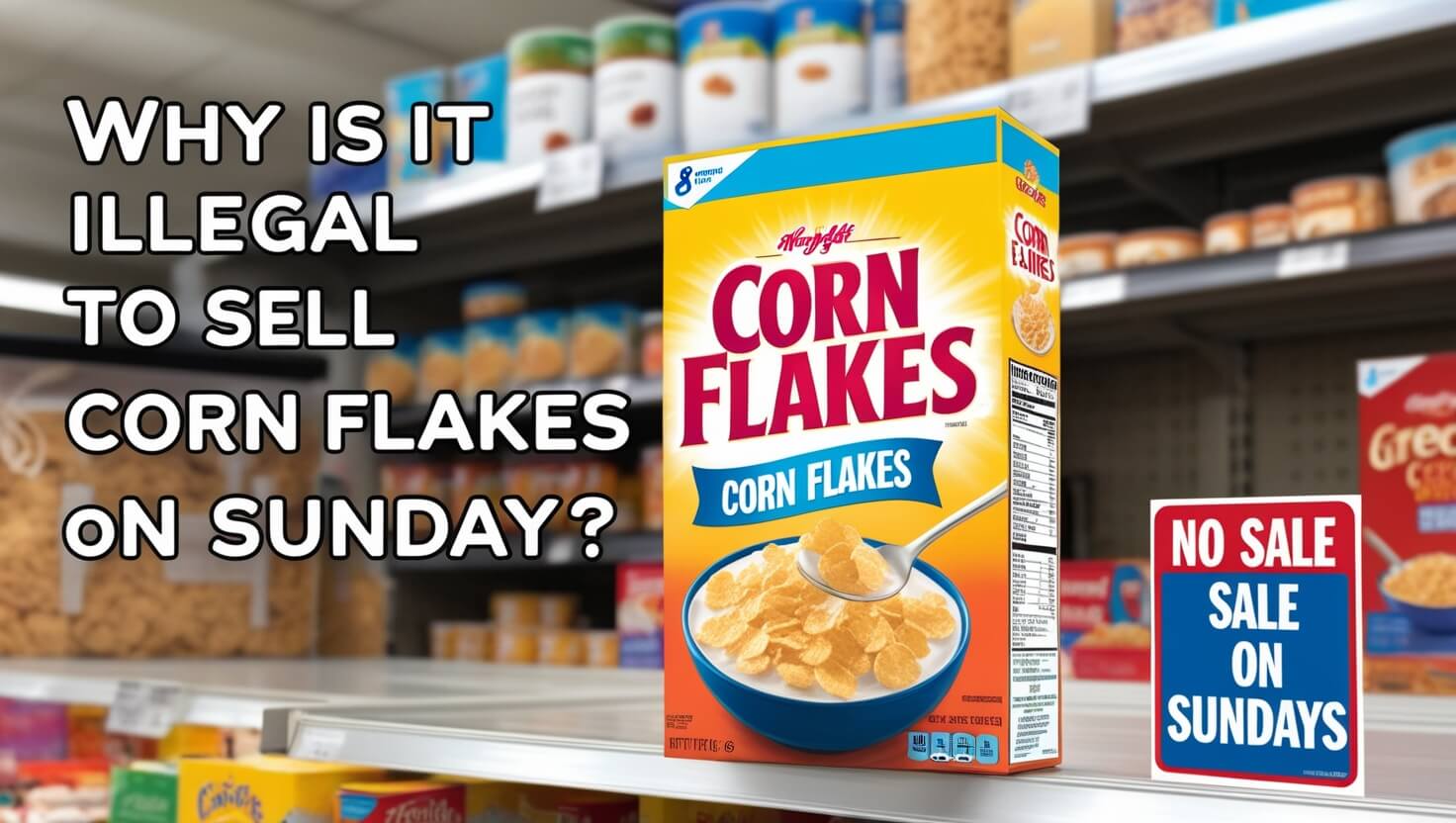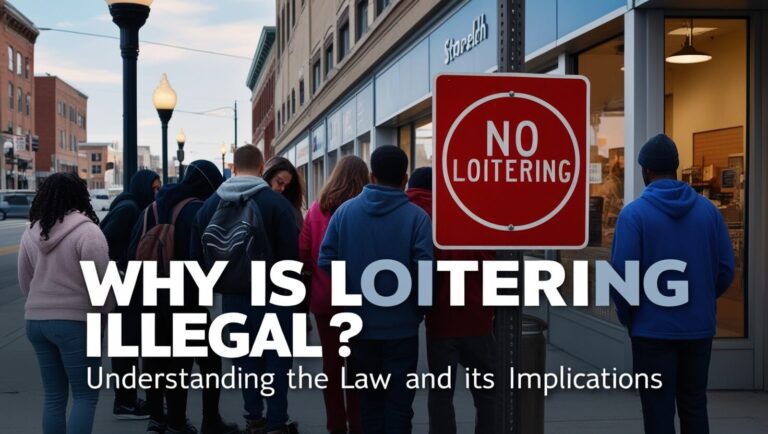why is it illegal to sell corn flakes on sunday

Have you ever heard that it’s illegal to sell corn flakes on Sunday in Columbus, Ohio? This unusual claim has been circulating for years, leaving many people scratching their heads and wondering about the truth behind this peculiar law. In this article, we’ll dive deep into the origins of this rumor, examine the facts, and explore the broader context of Sunday sales restrictions. So, grab a bowl of your favorite cereal (yes, even on a Sunday), and let’s unravel this mystery together!
The Origin of the Corn Flakes Sunday Sale Myth
To understand why people believe it’s illegal to sell corn flakes on Sunday, we need to take a trip back in time and explore the history of this iconic breakfast cereal.
Dr. John Harvey Kellogg and the Invention of Corn Flakes
The story of corn flakes begins in the late 19th century with Dr. John Harvey Kellogg, a man known for his unconventional ideas about health and nutrition. Kellogg, who ran a sanitarium in Battle Creek, Michigan, was always on the lookout for foods that would promote good health and, interestingly, discourage certain behaviors he deemed immoral.
In 1894, Kellogg and his brother, Will Keith Kellogg, accidentally left some cooked wheat to sit out overnight. The next morning, they discovered that the wheat had gone stale. Instead of throwing it away, they decided to roll it out and toast it. This happy accident led to the creation of wheat flakes, which eventually evolved into the corn flakes we know today.
The Kellogg brothers’ invention quickly gained popularity, and in 1906, Will Keith Kellogg founded the Battle Creek Toasted Corn Flake Company, which later became the Kellogg Company we know today.
Early 20th Century Blue Laws and Their Impact
Around the same time that corn flakes were gaining popularity, many parts of the United States were still under the influence of so-called “Blue Laws.” These laws, which had their roots in colonial America, were designed to enforce religious standards, particularly the observance of Sunday as a day of rest and worship.
Blue Laws often restricted various activities on Sundays, including the sale of certain goods. While these laws varied from state to state and city to city, they generally aimed to limit commercial activities on Sundays. It’s in this historical context that the myth about corn flakes sales on Sundays likely originated.
Examining the Alleged Columbus, Ohio Corn Flakes Law
Now that we understand the historical backdrop, let’s focus on the specific claim about corn flakes sales in Columbus, Ohio.
The Spread of the Rumor
The rumor about the illegality of selling corn flakes on Sundays in Columbus has been circulating for years. It’s often cited in lists of “weird laws” or “strange facts” about various states and cities. The claim has spread through word of mouth, social media, and even some reputable publications.
Fact-Checking: Is There Really a Law?
Despite the widespread belief, there is no current law in Columbus, Ohio, that specifically prohibits the sale of corn flakes on Sundays. In fact, grocery stores in Columbus routinely sell corn flakes and other cereals seven days a week without any legal repercussions.
So where did this myth come from? It’s likely a combination of factors:
- Misinterpretation of old Blue Laws
- Confusion with other Sunday sales restrictions (like alcohol)
- The human tendency to spread interesting or unusual information without fact-checking
While it’s true that Ohio, like many states, has had various Blue Laws throughout its history, there’s no evidence of a law specifically targeting corn flakes sales on Sundays.
Understanding Blue Laws in Ohio
To fully grasp why people might believe in the corn flakes myth, it’s helpful to look at the broader picture of Blue Laws in Ohio.
Historical Context of Sunday Sales Restrictions
Ohio, like many other states, has a long history of Blue Laws. These laws were particularly prevalent in the 19th and early 20th centuries. They covered a wide range of activities, from prohibiting certain types of work to restricting the sale of various goods.
In the past, Ohio did have laws that limited Sunday sales. However, these laws were generally broad in scope, covering categories of goods rather than specific products like corn flakes. For example, there were restrictions on the sale of clothing, furniture, and other non-essential items on Sundays.
Modern Blue Laws in Ohio
Over time, many of Ohio’s Blue Laws have been repealed or significantly relaxed. However, some vestiges of these laws remain, particularly when it comes to alcohol sales. For instance, until 2004, Ohio prohibited the sale of alcohol on Sundays. Even today, there are restrictions on when alcohol can be sold on Sundays, and some communities in Ohio remain “dry” on Sundays.
It’s possible that the persistence of some Blue Laws, combined with memories or stories of more restrictive times, has contributed to the spread of myths like the corn flakes sales prohibition.
The Reality of Corn Flakes Sales on Sundays
Now that we’ve debunked the myth, let’s look at the actual situation regarding corn flakes sales on Sundays in Columbus and Ohio more broadly.
Current Grocery Store Practices in Columbus
In Columbus, as in the rest of Ohio, grocery stores operate normally on Sundays. This includes the sale of all types of cereals, including corn flakes. Major supermarket chains, local grocery stores, and convenience stores all stock and sell corn flakes without any Sunday-specific restrictions.
Legal Status of Cereal Sales on Sundays
There are no laws in Ohio that restrict the sale of cereal or any other grocery items on Sundays. The only notable Sunday sales restrictions that remain in Ohio primarily relate to alcohol, and even these have been significantly relaxed in recent years.
Similar Unusual Laws Across the United States
While the corn flakes law in Columbus is a myth, there are plenty of real, unusual laws across the United States that might surprise you.
Quirky Food-Related Laws in Other States
Here are a few examples of strange food-related laws that actually exist (or existed) in various parts of the U.S.:
- In Alabama, it’s illegal to carry an ice cream cone in your back pocket at any time.
- In Wisconsin, restaurants are required by law to serve cheese and butter with every meal.
- In Louisiana, it’s illegal to order a pizza to be delivered to a friend without their knowledge.
While these laws might seem amusing, they often have interesting historical contexts or were created to address specific issues of their time.
The Persistence of Outdated Laws
Many unusual laws persist simply because no one has bothered to remove them from the books. In some cases, these outdated laws can cause confusion or lead to the spread of misinformation, as we’ve seen with the corn flakes myth.
The Impact of Blue Laws on Businesses and Consumers
Even though the corn flakes law isn’t real, it’s worth considering the impact that Blue Laws have had and continue to have on businesses and consumers.
Economic Effects of Sunday Sales Restrictions
Historically, Blue Laws have had significant economic impacts. By restricting Sunday sales, these laws affected:
- Retail businesses, which lost a day of potential sales
- Consumers, who had limited shopping options on Sundays
- Workers, who either lost work hours or had guaranteed days off, depending on perspective
Public Opinion on Blue Laws
Public opinion on Blue Laws has shifted dramatically over the years. While these laws were once widely accepted, today they’re often seen as outdated and unnecessary. Many people argue that in a diverse society, laws based on specific religious observances are inappropriate.
However, some continue to support certain types of Blue Laws, arguing that they provide a common day of rest and help small businesses compete with larger chains that can more easily staff seven days a week.
Debunking Urban Legends About Food Laws
The corn flakes myth is just one of many urban legends about food laws. Let’s look at why these myths persist and how to separate fact from fiction.
Common Misconceptions About Food Regulations
Food law myths often arise from misunderstandings about actual regulations or from the game of “telephone” that can happen as information is passed along. Some common types of food law myths include:
- Exaggerations of actual laws
- Misinterpretations of old or repealed laws
- Confusion between local, state, and federal regulations
- Jokes or satire that are taken seriously
The Role of Social Media in Spreading Misinformation
Social media has played a significant role in spreading food law myths. The rapid sharing of information, often without fact-checking, can cause false claims to spread quickly. Additionally, the desire for engaging or unusual content can lead to the amplification of myths like the corn flakes law.
The Cultural Significance of Corn Flakes
While we’ve established that there’s no law against selling corn flakes on Sundays, it’s worth considering why this particular cereal has such cultural significance that it could become the subject of an urban legend.
Corn Flakes as an American Breakfast Icon
Corn flakes have been a staple of American breakfast tables for over a century. They represent:
- The industrialization of food production
- The shift towards convenient, ready-to-eat meals
- The rise of national food brands
This iconic status makes corn flakes a natural subject for urban legends and myths.
The Kellogg Company’s Influence on Breakfast Culture
The Kellogg Company has played a significant role in shaping American breakfast habits. Through marketing, product innovation, and cultural influence, Kellogg’s has helped establish cereal as a quintessential American breakfast food.
This cultural impact may contribute to why people find the idea of a law restricting corn flakes sales believable – it seems like regulating such an important part of American food culture.
Legal Challenges to Blue Laws
While the corn flakes law may be a myth, real Blue Laws have faced numerous legal challenges over the years.
Constitutional Arguments Against Sunday Sales Restrictions
Opponents of Blue Laws have often argued that these laws violate the First Amendment’s Establishment Clause, which prohibits the government from establishing an official religion. The argument is that laws enforcing a Christian Sabbath unfairly privilege one religion over others.
Recent Legal Developments in Blue Law Cases
In recent decades, many Blue Laws have been struck down or repealed. Courts have often found that while some Blue Laws may have had a secular purpose (like ensuring a common day of rest), others were too closely tied to religious observance to be constitutional.
The Future of Sunday Sales Regulations
As we’ve seen, the landscape of Sunday sales regulations has changed dramatically over the years. So what might the future hold?
Changing Attitudes Towards Blue Laws
Public opinion has largely shifted against Blue Laws, with many people viewing them as unnecessary restrictions on personal freedom and commerce. This shift has led to the repeal of many Blue Laws across the country.
Potential Legislative Changes
While most Blue Laws related to general retail have been repealed, some states are still grappling with Sunday alcohol sales restrictions. It’s likely that we’ll continue to see debates and potential changes in this area.
As for corn flakes? They’re safe to sell any day of the week, at least as far as the law is concerned!
Final Verdict: Separating Fact from Fiction in Food Laws
The myth about it being illegal to sell corn flakes on Sundays in Columbus, Ohio, serves as a fascinating case study in how urban legends spread and persist. While this particular law doesn’t exist, it points to the complex history of Blue Laws in the United States and the ongoing debates about government regulation of commerce.
As we’ve explored, the reality of Sunday sales laws is far more nuanced than urban legends might suggest. While some restrictions do still exist, particularly around alcohol sales, most Blue Laws have been repealed or significantly relaxed over the years.
This exploration also highlights the importance of critical thinking and fact-checking. In an age where information (and misinformation) can spread rapidly, it’s crucial to approach unusual claims with a healthy dose of skepticism.
So the next time you hear about a strange food law, remember the case of the Sunday corn flakes sales in Columbus. Take a moment to dig a little deeper – you might be surprised at what you find!
And of course, feel free to enjoy your corn flakes any day of the week, including Sundays. After all, breakfast is the most important meal of the day, no matter what day it is!






